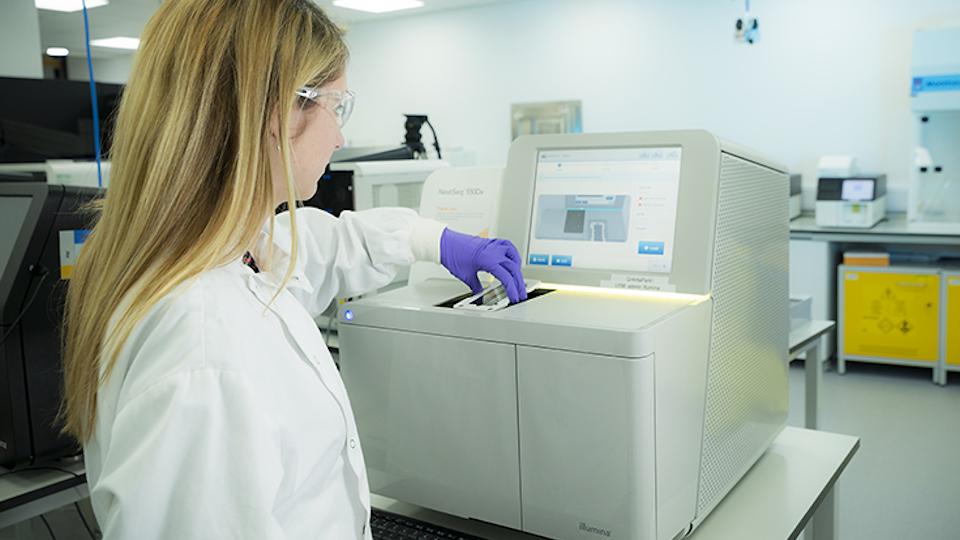NHS Wales partners with Illumina on genomics drive

Wales has extended a scheme to harness the power of genomics to improve cancer care and prevention via an alliance with gene-sequencing giant Illumina.
NHS Wales has signed a memorandum of understanding (MoU) with Illumina to expand an earlier partnership focusing on lung cancer diagnosis using blood samples – known as multi-cancer early detection (MCED) or 'liquid biopsies' – for comprehensive genomic profiling (CGP).
The plan now is to extend that alliance "into other cancer types, and into wider areas of genomics with the aim of prevention, earlier diagnosis, and personalised treatments," said the Welsh devolved government in a statement.
It is hoped that this will result in new clinical approaches and medicines and help support efforts by NHS Wales to improve preventative care, catching cancers earlier when they are most likely to respond to treatment.
Cabinet Secretary for Health and Social Care Jeremy Miles said the MoU has the potential to make a huge difference to preventative cancer care for people in Wales.
"Our ambition is for Wales to be at the forefront of genomics and this [MoU] reflects our efforts to strategically partner homegrown talent and ingenuity with industry to help achieve this and strengthen our resilience for the future," he remarked during a visit to Wales Genomic Health Centre (Canolfan Iechyd Genomig Cymru) to meet the partners for the project.
"We believe that working together pooling knowledge and expertise, as well as making better use of the scarce resources available, will boost research into the sector," added Miles.
In 2017, the Welsh government issued the Genomics for Precision Medicine Strategy and, last December, the Genomics Delivery Plan for Wales 2022-2025, calling for nationwide clinical care based on next-generation sequencing (NGS).
Along with measures to increase the coordination of genomics testing across the country, the aim is to develop the genomics industry within Wales through measures like investment in emerging technologies, as well as grants and sponsorships, said Illumina.
Since the Welsh lung cancer project was started, Illumina has sold off its MCED unit Grail, amid pressure from antitrust regulators, which claimed the company had a monopolistic position in the market.
MCEDs, like Grail's Galleri test, aim to detect dozens of different forms of cancer from fragments of cell-free DNA (cfDNA) that leak from tumours and can be detected in the blood. In Wales, ctDNA is currently used in a limited fashion to investigate genes associated with targeted cancer therapies – namely EGFR and KRAS – and usually when tissue is unavailable in late-stage patients.
The MoU has been signed by Cardiff and Vale University Health Board, Cardiff University, Public Health Wales, and Illumina Cambridge, in collaboration with the Welsh Government, and supported by Life Science Hub Wales and Genomics Partnership Wales.












